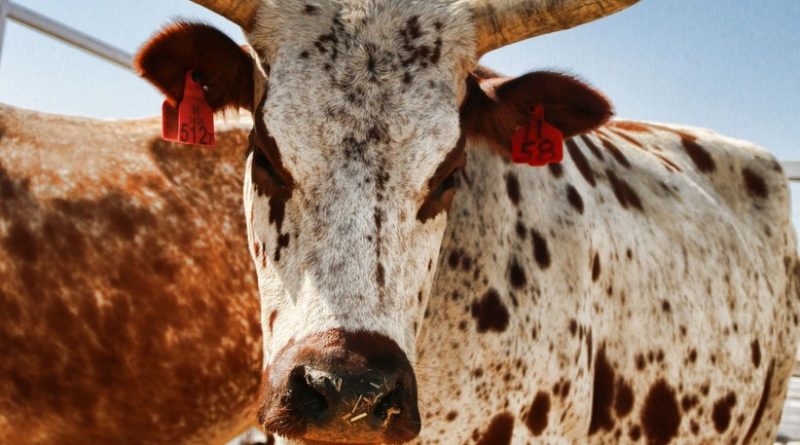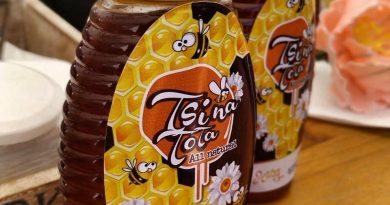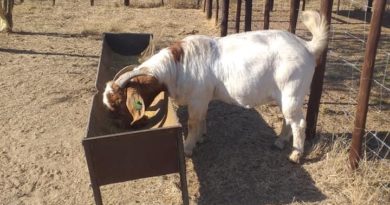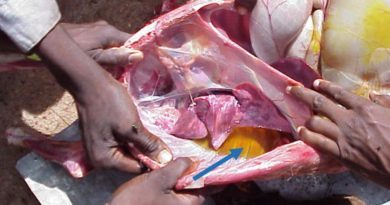Nguni cattle offers opportunities to communal farmers
According to Dirk Luus, of Kwa Makhathini Ngunis, Nguni cattle offers a unique, economically sustainable advantage to beef farmers and should be the natural choice for informed business managers of any beef production system. He explains to Farmers Review why farmers should opt for this versatile breed.
Throughout Southern Africa’s farming community, the Nguni cattle breed is well known and identifiable by its distinctive, pigmented hide colours. Luus believes that the Nguni is a versatile cattle breed that any communal and even commercial farmer can use in the sustainable production of beef and quality genetics.
“Our aim is to breed good quality, true to type Nguni cattle which reflects the distinctive traits the Nguni breed is known for.” He says.
The Nguni offers many advantages over other breeds. It is indigenous and is well adapted to the unforgiving African plains. The breed can fend for itself and live off the veld, eating grasses and shrubs.
Four ecotypes are known, namely the Makhathini, the Pedi, the Swazi and the Gazankulu types. Whilst the environment shaped these animals into their respective ecotypes, these distinctive ecotypes are still known as Nguni cattle.
“Everything about the Nguni is incredible especially their ability to survive in an adverse environment,” says Luus. Makhathini Ngunis imported a small herd of purebred stud Makhathini Nguni’s in 2015 and they currently have around 160 animals at their 2000 hector farm, simply called Buitsivango Farm, which is located in Ghanzi. The livestock was obtained from the well-known Vemvane Nguni’s in South Africa which is owned by Michéle Schmit and her late husband Otto Schmit.
During the early 1990’s Otto carefully sourced breeding stock from the Makhathini flats in northern Kwa Zulu Natal. After two years of rigorous testing, these animals were recorded to the South African Stud Book and the first purebred Makhathini herd was established and registered.
Mr Dirk emphasizes that farmers must learn to farm with the environment, not against it, and this is what the Nguni does according to him. The Nguni is naturally resistant to diseases and is even more resistant to parasites than other breeds, therefore breeding with them means production costs are kept to the bare minimum. They produce beef at the lowest cost per kilogram per hectare, simply making them the most profitable and economically sustainable cattle breed.
The Nguni can tolerate climatic extremes and has a higher, internal urea and rumen ammonia levels which enables it to utilise and convert low quality forage.
“The Nguni with its great meat and hide quality is also highly suitable for cross-breeding,” explains Luus. It also has a unique pigmentation which offers it protection against eye and skin cancer.
Nguni cattle are well known for their exceptional fertility, ease of calving, good mothering ability and high re-conception rates even in extreme conditions. “This is a low maintenance breed with low labour demands and feeding costs.” Emphasizes Luus. Nguni’s browse and graze and have the ability to cover long distances over poor terrain to forage for feed and water.
Luus says that there are so many advantages of breeding Ngunis. Their calves show a high growth tempo from a low birth mass and weans up to 50% and more of their mothers weight. They have low mortality rates from birth to weaning.
Their ability to “finish” faster off the veld with only a Calcium-phosphate lick ensures an efficient conversation of veld into expensive beef and the potential to produce more kilograms of meat per hectare. The cows are highly favoured as a dam line to produce cross-breed calves that thrive in grass fed beef production systems. Nguni’s longevity and high reproduction means farmers incur lower replacement costs resulting in the optimization of quality genetics in their herds.
The docile temperament of the Nguni ensures ease of handling which reduces the demand on extensive cattle handling facilities and saves on labour costs. While they have a good temperament, Nguni cattle fiercely protects their calves in the veld and are able to fend off predators and as well as stock thieves.
“Even their uniquely coloured hides are an added bonus as they are a very sought after by-product.” He explains.
In order to share these traits with local cattle farmers, Kwa Makhathini donates five bulls every two years to farmers who are interested and keen on developing this breed. The first donation was done in 2015 and the animals are first inspected by the Nguni Cattle Breeders’ Society to make sure that they are up to standard before they are donated.
This year Kwa Makhathini Ngunis will be donating five bulls during the Leon Vorster Livestock Auction which will be held on 24 November 2017 at the Ghanzi Showgrounds.
Additional information obtained from Nguni Cattle Breeders’ Society website. www.ngunicattle.info
If you need more information regarding this article, the Nguni cattle breed or the Kwa Makhathini Project please contact the stud managers via email:
Or visit their Facebook Page.



